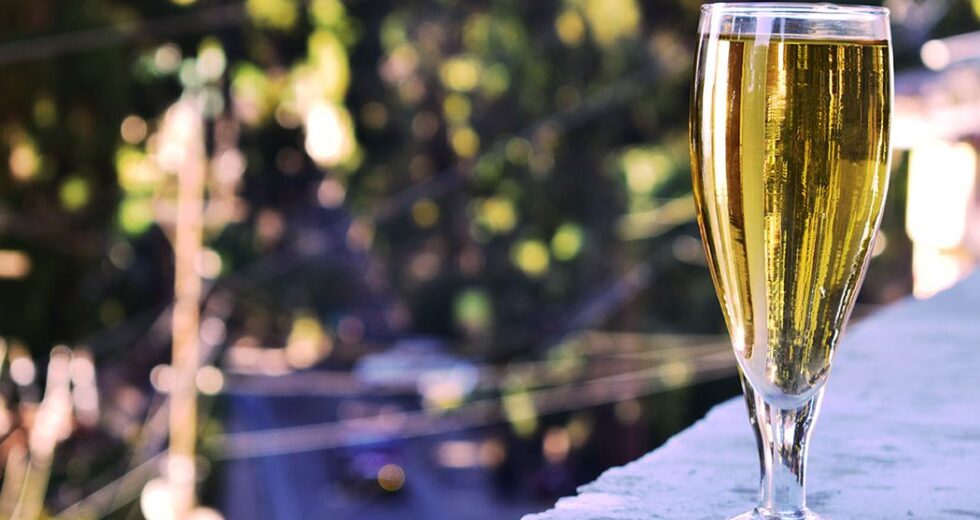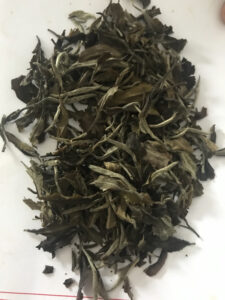Champagne of Teas Strives to Retain Sparkle
SB VEDA <CALCUTTA>
“My theory is that the British, who brought in the tea plants from China and taken some manpower with them to for processing, actually had scant knowledge about making tea – and improvised. Whereas, in the far east, they had been making tea for centuries by that time. So, we’ve tried to learn from these tea masters and innovate, ourselves.” – Rishi Saria, Owner Gopaldhara / Rohini Tea Estates
Known as “The Champagne of Teas” (sometimes served in champagne flutes to tourists to punctate this elite image) with the British era “Burra Saheb” culture still lingering in the mist, Darjeeling Tea has come been known as the pinnacle of a certain kind of excellence in the cultivation of and consuming of tea.
With such a reputation, it may come as something of a surprise that much of the region stands as imperilled with 2022 shaping up to be a particularly bad year for the industry. In March of this year, the Secretary General of the Indian Tea Association, which represents growers and manufacturers, met a standing committee of the Indian Parliament to propose a relief package for the region, calling the industry “unviable.” Iron-fisted Indian Prime Minister, Narendra Modi, a proud self-proclaimed former chaiwallah, is loath to accommodate the planters, saying that it would set a bad precedent, and other industries would then visit Delhi with begging bowls in hand.
To be fair, Darjeeling hasn’t come knocking with a panhandler’s intent – the industry has genuinely suffered unexpected difficulties.
Indeed, there are several reasons for the woes of the industry: A strike resulting from political agitation numbering 104 days in 2017 during peak production season was costly and buoyed the prospects of key competitors from Nepal and Kenya. With jungle overgrowth having occurred, when the gardens opened, workers (those who hadn’t left for other jobs during the hiatus) began the daunting task of clearing, cutting, pruning, and re-cultivating but that year, the weather didn’t cooperate. 2020 was shaping up to producing a stellar harvest with ideal weather for the cultivation of tea having presented that year – but Covid-19 brought lockdowns and the crop was basically a write-off. Another re-building with an even more marginalized workforce ensued.
While workers’ movements, which have succeeded in changing Indian laws to provide much needed healthcare and pensions for workers – something their comrades elsewhere to not get, has driven up the cost of production significantly. Their Nepalese brethren work for a fraction of this cost and lack the protections of Indian workers. Grown in a climactically and topographically similar region, Nepalese tea (made from the same plant) carries Darjeeling-like flavour notes and astringency and can be produced far more economically than its more storied and distinguished cousin.
Moreover, over the past thirty some years, Darjeeling planters have painstakingly converted many of their gardens from conventional to organic – a meticulous and arduous process requiring much investment, checking and patience. European exports have increased as a result. However, both domestic and foreign mixing of Nepalese tea with Darjeeling leaves has brought about a new and more profitable commodity termed “Himalayan Tea.” Hence, the valued Geographic Indication (GI) tag associated with Darjeeling Tea (akin to French tagging of Champagne) has been put in jeopardy in protecting Darjeeling Tea from bastardisation.
Climate change has been a huge challenge with which garden managers have been contending. The Chinese origin tea plant grown in Darjeeling district best flourishes at high altitudes in the foothills of the Himalayas; it is sensitive and requires moderate temperature, early sun, followed by spring rain and then more sun brought and drying on by summer. Later, monsoons bring a different type of harvest in autumn. But winter drought, early summer, sporadic storms, gales, and hailstorms as well as overall increased average temperatures have made it far more difficult to produce tea of such consistently high quality as Darjeeling consumers have come to expect.
The leaves are losing their flowery, astringent, fruity characteristics, leaving orthodox Darjeeling tasting a little bit flatter. Organic gardens find it difficult to manage the unwelcome pests that have found favour in these warmer and more humid habitats. Such vermin like mosquitoes actually damage the tea leaves, causing premature oxidation of the plant. The subtle flavour protected in the chloroplast-fortified walls of these treasured leaves leaks out. With nymphs (baby mosquitoes) sucking he sap from the leaves shoots and buds often leaves nothing left to pluck – and is causing significant crop loss.
The situation prompted some owners to make innovations in processing to ‘engineer’ the distinct Darjeeling flavour even as tea tasters and tea traders are stuck in the past when it comes to their expectations of the taste of Darjeeling tea. Flavourful green teas from Darjeeling leaf and Oolongs bursting with flavour are being produced as a result of persistent climactic anomaly but Japan and China dominate these market segments.
Domestically, the tea sold as Darjeeling is triple the district’s total capacity (including exports) evidencing that tea traders are mixing loose Darjeeling leaf with cheaper variants chiefly from Nepal. There are no organic gardens in Nepal (in fact, Nepalese tea has tested to contain between thirty to one hundred chemicals many of which are classified as carcinogenic). So, those who drink Darjeeling tea for health reasons having been duped by unscrupulous traders, are paying a premium to imbibe a tainted brew.
Some owners like Ashok Lohia, the last of the great tea barons of the 20th Century, say that Darjeeling tea should be sold in sealed packs from garden to shelf, allowing for margins to be taken by retailers just like wine or champagne. Indeed, Rishi Saria, a young tea innovator who owns three tea gardens is doing just that – but both say that the antiquated tea auction system at which around 50% of Darjeeling is marginalising this kind of retail business, domestically. Direct sales, if successful en masse, would cut into the profit taking of tea brokers and retailers who both blend (even adulterate) the tea sold and mark-up the prices of tea to the consumer for the quality being sold.
Online sales have helped but don’t make up for siphoning of tea by local tea merchants who’ve eaten into the sales of pre-packaged and sealed boxes off the shelf directly from gardens. Sales from Darjeeling gardens, as a result, are down, workers aren’t getting promised increases due to faltering sales; the only people getting rich are the traders who cut open wholesale bags and mix. Meanwhile, owners must assess the viability of gardens on an annual basis. Already, Sanjay Bansal, whose Darjeeling Organic Tea Estates Private Limited was the second largest producer in the region, and who was personally known as a visionary for reviving ailing gardens and making them profitable, penetrating the competitive retail markets abroad including Harrod’s in London, has sold off all put a tiny remnant of his stake in tea. The new owners from Europe, his erstwhile buyers, have found the finances in a mess and entrusted new CEO, Indroneel Goho to clean it up.
With several interviews with Mr. Goho being scheduled and then cancelled, it appears the situation is not one about which ODTPL is willing to discuss. “So much of my time is being monopolized by lawyers and accountants,” admitted Mr. Goho the last time he cancelled. Surely he has to be careful about what he reveals to the press during this highly sensitive period. Indeed, one hears that the company is in talks to sell off some six gardens amidst lack of funds and significant labour troubles as workers are not getting paid by management due to the shortage in money.
Presently, a new player in the industry, Krishnendu Chatterjee’s Lemongrass Organic Tea Estates Pvt. Ltd., appears to be poised to benefit the most from OTEPL’s woes. But what deals will be made have yet to transpire.
 The Global Calcuttan Magazine
The Global Calcuttan Magazine 
